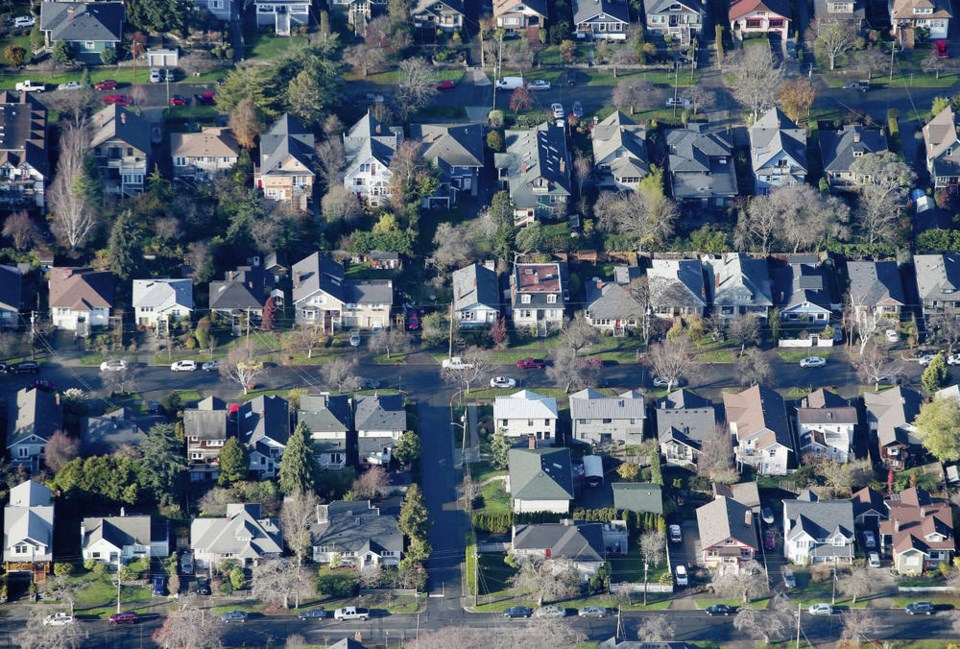With less than a week before the federal election, the B.C. Real Estate Association is calling on all parties to start looking at housing policy through a climate-change lens, and recommending gentle densification as a means of providing energy-efficient housing while improving affordability.
In a statement, Darlene Hyde, the association’s chief executive, said it would be irresponsible to look at solutions to Canada’s housing supply crisis without looking at how any fix would affect climate.
“In fact, by looking at the two together, we are more likely to explore creative solutions that will make the long-lasting change that is needed in both areas,” she said.
Single-family dwellings generally consume more energy and emit more greenhouse gases per square foot of livable area than townhouses or apartments built under the same building code.
Most single-family homes are also built in areas that are further from employment centres and not within easy walking distance of retail and service outlets, recreation or entertainment amenities. The result is an increased reliance on cars for transportation, resulting in more greenhouse-gas emissions.
The association is recommending that all parties consider creating more of what has been called the “middle missing” category of housing through densification measures such as allowing carriage houses and replacing large single-family homes with three or four units on the same lot.
By densifying single-family-zoned neighbourhoods, cities can establish energy-efficient housing that suits young families and empty nesters who would like housing options within their home neighbourhoods, the association said.
It argues that replacing the expensive single-family home model with three, four or five units on the same plot of land is better for both affordability and the climate.
“This summer British Columbia experienced the worst heat wave in our recorded history and what could end up being the most devastating wildfire season ever,” said Hyde. “If there were any doubts about the very real impacts of climate change, they should be erased. Canadians want to see real action on climate change, and they want to see it now.”



